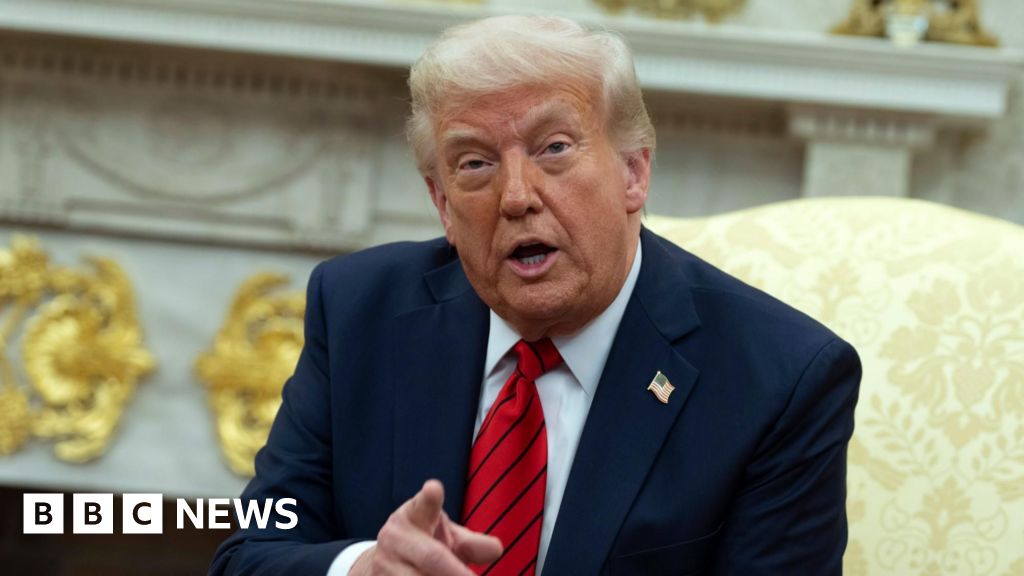Trump's Executive Orders Spark Controversy Among Major US Law Firms
In a dramatic escalation of tensions between the Trump administration and prominent law firms across the United States, President Donald Trump has issued threats that could significantly impact the legal landscape. His executive orders, which aim to revoke security clearances for attorneys working with the government, have sent shockwaves through the legal community, prompting divisions and debates over the ethical implications of compliance versus resistance.
Recently, reports have emerged detailing the fallout from Trump's confrontational stance towards big law firms. While some firms are taking a stand and challenging the executive orders in court, others have opted for a more conciliatory approach, seeking to negotiate deals that often involve substantial commitments to pro bono legal work for causes aligned with Trumps agenda. This has sparked significant controversy and raised questions about the long-term impact of such decisions on the legal profession.
One of the first firms to strike a deal with the Trump administration was Paul Weiss, led by chairman Brad Karp, who communicated to his colleagues that the decision was essential for the firms survival, calling the executive orders an existential threat. This move has not been without its critics, as many in the legal field view these agreements as capitulations that set a dangerous precedent for the legal profession, particularly in its relationship with political power.
The growing rift in the legal community has resulted in some attorneys resigning in protest. A notable case is Siunik Moradian, an associate at Simpson Thacher & Bartlett in Los Angeles, who publicly voiced his dissent against his firm's decision to engage with the Trump administration. In an email to his colleagues, Moradian stated that accepting the terms of the deal, which included approximately $125 million in pro bono work, amounted to bending the knee to authoritarianism. His resignation marks a significant stand against what he described as an unlawful appropriation of power by the government.
In a candid interview with Business Insider, Moradian reflected on his decision to leave, revealing that the contemplation had begun even before Simpson Thacher formalized its agreement with the administration. He expressed his initial belief that the well-resourced law firms would resist rather than yield to the pressures exerted by the Trump administration. However, witnessing firms like Paul Weiss capitulating altered his perception and prompted him to reconsider his position.
Moradian emphasized the ease with which a legal challenge could be mounted against the executive orders, criticizing the rationale behind the agreements as stemming from extra-legal extortionist tactics. He warned that such compromises could embolden the Trump administration to further weaponize the legal system, thus posing a significant threat to the integrity of the legal profession and the rule of law.
In stark contrast, several law firms, including Jenner & Block, Perkins Coie, and WilmerHale, have taken legal action against the Trump administration, filing lawsuits to contest the validity of the executive orders. Recently, Susman Godfrey joined the ranks of firms resisting the administration's encroachments, showcasing that not all in the legal profession are willing to capitulate.
Moradian's resignation is not an isolated event; he joins former associates from the Skadden firm, Rachel Cohen and Brenna Frey, who also stepped down in protest over their firm's dealings with the administration. As the legal community grapples with these weighty issues, Moradians departure serves as a clarion call for others to voice their concerns and resist what he perceives as an alarming trend that threatens the core values of the legal profession.
Ultimately, Moradian argues that the time to resist such governmental overreach is now, asserting that the longer law firms wait to take a stand, the harder it will be to fight back against the encroaching influence of politics on the legal system. As voices of dissent emerge within the ranks of these powerful institutions, the broader implications for the legal community and the rule of law hang in the balance.
As of now, Simpson Thacher has not issued a response to requests for comment regarding this unfolding situation. The legal community watches closely as the events continue to develop.


























